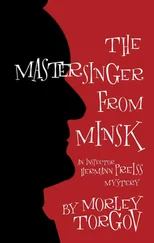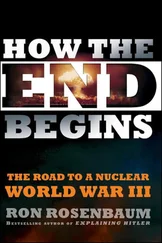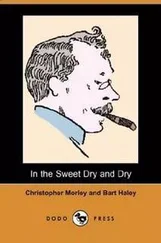Christopher Morley - Where the Blue Begins
Здесь есть возможность читать онлайн «Christopher Morley - Where the Blue Begins» весь текст электронной книги совершенно бесплатно (целиком полную версию без сокращений). В некоторых случаях можно слушать аудио, скачать через торрент в формате fb2 и присутствует краткое содержание. Жанр: Проза, на английском языке. Описание произведения, (предисловие) а так же отзывы посетителей доступны на портале библиотеки ЛибКат.
- Название:Where the Blue Begins
- Автор:
- Жанр:
- Год:неизвестен
- ISBN:нет данных
- Рейтинг книги:5 / 5. Голосов: 1
-
Избранное:Добавить в избранное
- Отзывы:
-
Ваша оценка:
- 100
- 1
- 2
- 3
- 4
- 5
Where the Blue Begins: краткое содержание, описание и аннотация
Предлагаем к чтению аннотацию, описание, краткое содержание или предисловие (зависит от того, что написал сам автор книги «Where the Blue Begins»). Если вы не нашли необходимую информацию о книге — напишите в комментариях, мы постараемся отыскать её.
Where the Blue Begins — читать онлайн бесплатно полную книгу (весь текст) целиком
Ниже представлен текст книги, разбитый по страницам. Система сохранения места последней прочитанной страницы, позволяет с удобством читать онлайн бесплатно книгу «Where the Blue Begins», без необходимости каждый раз заново искать на чём Вы остановились. Поставьте закладку, и сможете в любой момент перейти на страницу, на которой закончили чтение.
Интервал:
Закладка:
Of course all this was very entertaining, and an admirable opportunity for studying his fellow-creatures; but it did not go very deep into his mind. He lived for some time in a confused glamour and glitter; surrounded by the fascinating specious life of the store, but drifting merely superficially upon it. The great place, with its columns of artificial marble and white censers of upward-shining electricity, glimmered like a birch forest by moonlight. Silver and jewels and silks and slippers flashed all about him. It was a marvellous education, for he soon learned to estimate these things at their proper value; which is low, for they have little to do with life itself. His work was tiring in the extreme — merely having to remain upright on his hind legs for such long hours was an ordeal — but it did not penetrate to the secret observant self of which he was always aware. This was advantageous. If you have no intellect, or only just enough to get along with, it does not much matter what you do. But if you really have a mind — by which is meant that rare and curious power of reason, of imagination, and of emotion; very different from a mere fertility of conversation and intelligent curiosity — it is better not to weary and wear it out over trifles.
So, when he left the store in the evening, no matter how his legs ached, his head was clear and untarnished. He did not hurry away at closing time. Places where people work are particularly fascinating after the bustle is over. He loved to linger in the long aisles, to see the tumbled counters being swiftly brought to order, to hear the pungent cynicisms of the weary shopgirls. To these, by the way, he was a bit of a mystery. The punctilio of his manner, the extreme courtliness of his remarks, embarrassed them a little. Behind his back they spoke of him as “The Duke” and admired him hugely; little Miss Whippet, at the stocking counter, said that he was an English noble of long pedigree, who had been unjustly deprived of his estates.
Down in the basement of this palatial store was a little dressing room and lavatory for the floorwalkers, where they doffed their formal raiment and resumed street attire. His colleagues grumbled and hastened to depart, but Gissing made himself entirely comfortable. In his locker he kept a baby's bathtub, which he leisurely filled with hot water at one of the basins. Then he sat serenely and bathed his feet; although it was against the rules he often managed to smoke a pipe while doing so. Then he hung up his store clothes neatly, and went off refreshed into the summer evening.
A warm rosy light floods the city at that hour. At the foot of every crosstown street is a bonfire of sunset. What a mood of secret smiling beset him as he viewed the great territory of his enjoyment. “The freedom of the city”—a phrase he had somewhere heard — echoed in his mind. The freedom of the city! A magnificent saying Electric signs, first burning wanly in the pink air, then brightened and grew strong. “Not light, but rather darkness visible,” in that magic hour that just holds the balance between paling day and the spendthrift jewellery of evening. Or, if it rained, to sit blithely on the roof of a bus, revelling in the gust and whipping of the shower. Why had no one told him of the glory of the city? She was pride, she was exultation, she was madness. She was what he had obscurely craved. In every line of her gallant profile he saw conquest, triumph, victory! Empty conquest, futile triumph, doomed victory — but that was the essence of the drama. In thunderclaps of dumb ecstasy he saw her whole gigantic fabric, leaning and clamouring upward with terrible yearning. Burnt with pitiless sunlight, drenched with purple explosions of summer storm, he saw her cleansed and pure. Where were her recreant poets that they had never made these things plain?
And then, after the senseless day, after its happy but meaningless triviality, the throng and mixed perfumery and silly courteous gestures, his blessed solitude! Oh solitude, that noble peace of the mind! He loved the throng and multitude of the day: he loved people: but sometimes he suspected that he loved them as God does — at a judicious distance. From his rather haphazard religious training, strange words came back to him. “For God so loved the world…” So loved the world that — that what? That He sent someone else… Some day he must think this out. But you can't think things out. They think themselves, suddenly, amazingly. The city itself is God, he cried. Was not God's ultimate promise something about a city — The City of God? Well, but that was only symbolic language. The city — of course that was only a symbol for the race — for all his kind. The entire species, the whole aspiration and passion and struggle, that was God.
On the ferries, at night, after supper, was his favourite place for meditation. Some undeniable instinct drew him ever and again out of the deep and shut ravines of stone, to places where he could feed on distance. That is one of the subtleties of this straight and narrow city, that though her ways are cliffed in, they are a long thoroughfare for the eye: there is always a far perspective. But best of all to go down to her environing water, where spaces are wide: the openness that keeps her sound and free. Ships had words for him: they had crossed many horizons: fragments of that broken blue still shone on their cutting bows. Ferries, the most poetical things in the city, were nearly empty at night: he stood by the rail, saw the black outline of the town slide by, saw the lower sky gilded with her merriment, and was busy thinking.
Now about a God (he said to himself) — instinct tells me that there is one, for when I think about Him I find that I unconsciously wag my tail a little. But I must not reason on that basis, which is too puppyish. I like to think that there is, somewhere in this universe, an inscrutable Being of infinite wisdom, harmony, and charity, by Whom all my desires and needs would be understood; in association with Whom I would find peace, satisfaction, a lightness of heart that exceed my present understanding. Such a Being is to me quite inconceivable; yet I feel that if I met Him, I would instantly understand. I do not mean that I would understand Him: but I would understand my relationship to Him, which would be perfect. Nor do I mean that it would be always happy; merely that it would transcend anything in the way of social significance that I now experience. But I must not conclude that there is such a God, merely because it would be so pleasant if there were.
Then (he continued) is it necessary to conceive that this deity is super-canine in essence? What I am getting at is this: in everyone I have ever known — Fuji, Mr. Poodle, Mrs. Spaniel, those maddening delightful puppies, Mrs. Purp, Mr. Beagle, even Mrs. Chow and Mrs. Sealyham and little Miss Whippet — I have always been aware that there was some mysterious point of union at which our minds could converge and entirely understand one another. No matter what our difference of breed, of training, of experience and education, provided we could meet and exchange ideas honestly there would be some satisfying point of mental fusion where we would feel our solidarity in the common mystery of life. People complain that wars are caused by and fought over trivial things. Why, of course! For it is only in trivial matters that people differ: in the deep realities they must necessarily be at one. Now I have a suspicion that in this secret sense of unity God may lurk. Is that what we mean by God, the sum total of all these instinctive understandings? But what is the origin of this sense of kinship? Is it not the realization of our common subjection to laws and forces greater than ourselves? Then, since nothing can be greater than God, He must be these superior mysteries. Yet He cannot be greater than our minds, for our minds have imagined Him.
Читать дальшеИнтервал:
Закладка:
Похожие книги на «Where the Blue Begins»
Представляем Вашему вниманию похожие книги на «Where the Blue Begins» списком для выбора. Мы отобрали схожую по названию и смыслу литературу в надежде предоставить читателям больше вариантов отыскать новые, интересные, ещё непрочитанные произведения.
Обсуждение, отзывы о книге «Where the Blue Begins» и просто собственные мнения читателей. Оставьте ваши комментарии, напишите, что Вы думаете о произведении, его смысле или главных героях. Укажите что конкретно понравилось, а что нет, и почему Вы так считаете.










